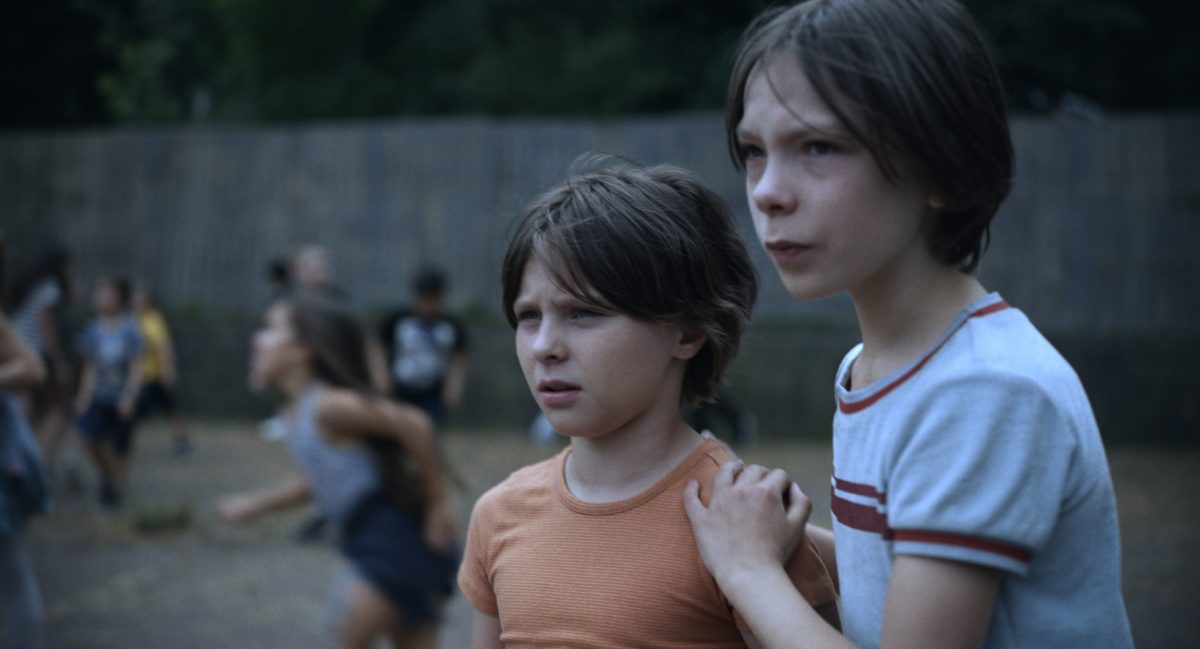A handheld long take, inches away from the face of our protagonists, introduces Nora and Abel, sister and brother, clutching for dear life to one another. The spatial intimacy immediately acclimates the dolorous setting as tears roll down Nora’s face from the solitary anxiety of entering a new school with no friends. First time director Laura Wandel has inadvertently found herself in the process of Adderall filmmaking—in which one aspect of the filmmaking takes precedence over all others. Un monde is exactly what it says on the box; a guarantee delivered in such good faith that it forgets to do anything else. The conceit, depicting the cyclical nature of adolescent bullying, is so successfully realized that it becomes the film’s detriment. Seven-year-old Nora must witness her older brother struggle with bullies at their school until he discovers the easiest means of survival is to become a bully himself. Wandel obsesses over purely depicting the cruelty of children without ever providing the motivational interiority that justifies such harrowing imagery. Perhaps a consequential pitfall of the anxiety to execute a debut film, but clearly the priorities were poured into the technical aspects here. Wandel is conscious to never place the camera above Nora’s height, ensuring we are habitually within her physical minutiae. Every scene wallows in a shallow depth of field, with blurring peripheries forcing focus on only the children’s point-of-view. Maya Vanderbeque and Günter Duret are superlative in their respective roles. And yet for all of its effective narrative decisions, there is a reason this film is only 72 minutes long; an exercise in abject miserabilism that solely operates in service of hyper-realism can only be sustained for so long. While sincerely admirable, Un monde is ultimately an empty film that amounts to little more than an overly long public service announcement.
Un monde — Young Critics Workshop
Un monde (Laura Wandel, 2021)
Review
